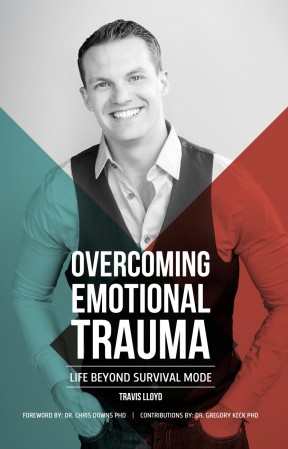3 Tips for Dealing With Difficult People
Dealing With Difficult People
Most of us run into the classic pain in the *ss situations and get stuck dealing with difficult people. Sometimes we might even be the difficult person. Either way, having a deeper understanding of how to deal with difficult situations helps us stay focused, feel empowered, and make everyone involved feel heard and valuable. Here’s a few tips to work through it smoothly.

Don’t attack difficult people. Learn more at www.OvercomingEmotionalTrauma.com
Did you know that the best way to deal with difficult people, live happier, be more successful, and have more fulfilling relationships is to learn how to deal with your own “crap” of the past? My book Overcoming Emotional Trauma helps you do just that!
When dealing with difficult people you have 1 of 3 choices:
- Be triggered. Be angered by them and stoop to their level. This leads to arguing with them, possibly blowing up, and allowing their personal issues to cause you to go off track from your goals in the situation or in life (inevitably leading to unnecessarily raising your blood pressure and shortening your life span).
- Be passive aggressive. Be angry, but don’t say anything. Just let them be difficult and keep it all inside. Don’t express yourself to them and allow your anger to distract your thoughts and actions in other parts of your life. This often leads to treating other people badly who truly don’t deserve to be treated badly. It also prevents you from focusing on you because that person now has all of your attention even if they are no longer in your presence.
- Be assertive. In the midst of dealing with someone who is simply being a pain in the *ss it is okay to get angry. But before allowing that anger to overpower your ability to think clearly, take a minute to reflect on the situation. Ask yourself why you feel angered and whether or not you have the ability to take control over how you feel about the situation. Sometimes the anger simply stems from not feeling in control in that moment or from that situation reminding you of how you felt in a past similar situation. Taking the time to reflect on that allows you to take responsibility for your own feelings, in turn giving you control over your own feelings regardless of how someone else is treating you.
Tips for being assertive:
- Listen to the other person’s viewpoint. Make sure they know that you have taken the time to hear them. People like to feel heard and understood. This builds trust with them even in high intensity moments. When you are listening, don’t voice your opinion or argue. This also gives you the opportunity to identify what is important to them so that you don’t say something that makes them feel less important.
- Tactfully voice your opinion. Once you have a good understanding of their viewpoint, voice your opinion in a calm manner and do not engage further if they argue. This gives you the opportunity to feel heard and makes it so you don’t have to think about it after the situation is over. This is you taking control over your mind and now allowing them to control your future thoughts.
- Walk away. If the difficult person is too angry to listen to you, even though you were kind enough to listen to them, then you can feel okay knowing that you did your best. In this situation, it is probably not your fault and they may be dealing with personal things that they are taking out on you. It’s not worth your time to think about it further. Simply find peace in knowing you can’t control other people and walk away.
- Remain at peace, follow up if necessary. Some things are pretty difficult to deal with and may still bother you even though you’ve done your best with steps 1 through 3. Sometimes the need to feel heard and have closure over the situation is very real and validated. Give it time and bring it up when you’ve both had a chance to cool off. Simply ask to have a deeper understanding of where they are coming from (makes them feel important) then ask to share your point of view. Asking permission to share your point of view helps them feel like they have control over how they interact in re-visiting the situation. They are more likely to listen to you at this point and you can both feel heard, come to a solution, or agree to disagree.
Get your copy of Overcoming Emotional Trauma today!
Like This Story? Share it! & Like My Fan Page Too!
Travis Lloyd is an inspiring motivational speaker with a powerful story of Overcoming Adversities to achieve happiness and Success – Against All Odds. As a youth motivational speaker, Lloyd’s audiences include high school, college, leadership events, and conferences for educators, child welfare and mental health professionals. He speaks and performs internationally, but still works as a Mental Health Crisis Worker and advocates for social change that impacts at-risk populations. He is a board member of Foster Care Alumni of America, VP of the Our Fields Of Hope Foundation and author o the book Overcoming Emotional Truama: LIfe Beyond Survival Mode. Find out more at www.TravisLloyd.net.
Sign Up To Receive Free Success Tips at www.TravisLloyd.net!
Motivational speaker Travis Lloyd believes that “If someone else can do it, so can you!”

